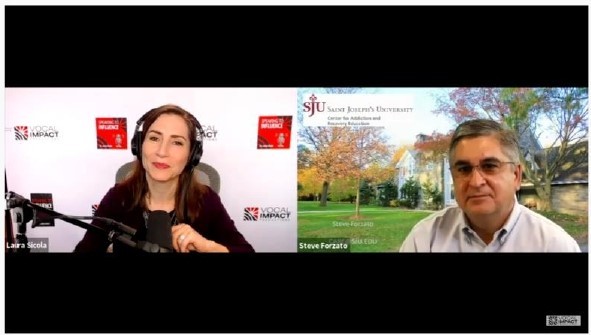“Keep your friends close, but keep your enemies closer.”
This piece of ageless wisdom has been attributed to many people over the years, from Sun Tzu in The Art of War, to early writings of Niccolo Machiavelli, and more recently to Michael Coroleone (played by Al Pacino) in The Godfather 2.
Why is that concept so popular across the ages and the continents? Why does closeness matter?
Because, as another famous refrain explains, “Proximity is power” (Tony Robbins).
In other words, the closer we get to someone, the easier it is to benefit from what and who they know (their sphere of influence,) and the more influence we can have over them as well.
With friends, the closer we are, the better we understand each other, empathize, support, encourage, give and receive, protect and defend. They are our people, our family, our tribe.
That’s why we gather for holidays, talk on the phone, meet for lunch, email, text, and share photos on Facebook: the closeness keeps those bonds strong.
On a professional level, we may want to get to know a senior coworker in hopes of earning their support for a promotion or introductions to other key stakeholders. Or we may join a professional organization in hopes of gaining insights into an industry we want to enter.
With opponents (i.e. competition or “enemies”), it’s about anticipation and power. The better we know their goals, motivations, desires, intentions and plans – particularly to the extent that success in those areas means directly or indirectly harming us – the better we can anticipate their moves and either thwart them or at least protect ourselves in the process. At the core, it’s no different whether it’s a battle for land, market share, or romantic affections.
That’s why we watch their social media posts; who they hire, fire and where they position their people; what products they’re rolling out, and what trends they follow.
Sometimes, part of the challenge, regardless of the relationship, is that gaining access – and beyond that, acceptance – requires learning to “speak their language.”
That ability to shift back and forth between speech styles is what’s known as “code switching,” and the learning curve can be steep, in both healthy and unhealthy contexts.
On the (arguably) healthy side,
- I had to learn to speak Japanese when moving to Japan (about as wide as a code can switch, from world language to world language),
- I had to learn to speak and write like an academician in order to earn my PhD, have my research published in journals and present at global conferences (what may be called “register shifting”)
- I later had to UN-learn those same oral and written communication styles when I shifted OUT of academia and into corporate consulting (so people’s eyes wouldn’t glaze over)
- And as I have had the opportunity to work with clients in fields such as asset management, healthcare and cybersecurity, I’ve had to learn a lot of the jargon, cultural/behavioral expectations (e.g. within teams or at industry conferences), and even their humor, in order to establish rapport and social credibility.
A learning curve is often uncomfortable, because by its nature it forces us out of our comfort zone. As long as our intention behind learning the code is driven with integrity, we are still being authentic in our learning journey, which is healthy.
However, when we are code-switching because we are being explicitly or implicitly forced to do so, actively pretending to be someone we aren’t, or otherwise hiding aspects of who we really are for fear of rejection, that “switching” becomes “covering,” which is on the UNHEALTHY end of the spectrum.
But what if your work EXPLICITLY REQUIRED donning an entirely new identity, in name, appearance and speech?
Of course, professional actors do it every day for fun. Undercover agents in law enforcement fields have to be just as effective on a daily basis… but NOT for fun.
For them, being convincing when playing their new role is literally a matter of life or death – theirs, and other people’s.
On this week’s Speaking to Influence podcast episode, our guest is Stephen Forzato, who spent 33 years of experience in law enforcement, 28 of which were as an undercover agent in narcotics and human trafficking, before becoming the director for the Center of Addiction and Recovery Education (CARE) at St. Joseph’s University.

While under cover, Steve spent decades working under the alias “Tony Randazzo.” When asked to describe Tony, Steve just said (in the understatement of the year), “You wouldn’t like him very much.” Yet he had to learn to literally embody that character, in words and actions, because to be “himself” would have blown his cover, his mission, and the safety of all involved.
Of course, after thirty years or so of having to put on this “unpleasant” persona — the way other people put on a suit — in order to go to work every day, he had to unlearn all the communication styles and behaviors he had appropriated, in order to follow his heart in a way that allows him to help everyone he meets at CARE.
During our conversation, Steve shared how the center addresses the public health crisis of addictions, partnering with treatment centers and other groups to develop educational curricula, including intervention strategies, not for those experiencing addiction, but for everyone else around them who is affected by having a person with addictions in their lives.
Now, instead of having to sit by and watch people harm themselves and others with drugs, he can focus all his efforts on helping individuals and families heal, and become the people they truly want to be!
Think talking to a stubborn boss, coworker or sibling is frustrating? Imagine how challenging it is to motivate, influence and persuade people who are under the influence of a controlled substance.
Listen to the full conversation here or watch it on YouTube here.
But if your goal is to be your most confident, authentic self and inspiring leader each and every day, I have exciting news for you:
Starting this Thursday, 6/9, women’s business coach, Sue Begent is leading the “Powerful, Confident and Visible Summit: Speaking Excellence for Women,” and I’m honored to be a featured guest expert.
But whether or not you’re a woman, the take-aways from the entire summit are immediately applicable for everyone! Listen in to this series of interviews to:
- Become poised and polished, and a powerful speaker
- Feel confident and magnetic as the expert you are
- Be compelling whether your presentation is online or in-person
- Command a room in a powerful, yet feminine way.

You’ll also learn how to
- Feel confident when saying your price or asking for a raise.
- Make best use of Zoom for business (It does much more than you think)
- Find those speaking gigs and get booked.
Twenty-one experts in the field of speaking and communication have shared their wisdom and it’s free to sign up so please join us!
The Summit Starts June 9th, so register HERE today. (Feel free to spread the word.)
Be sure to tune in and connect with me and these other powerful speakers, as well as our podcast guests. Why? Because remember – proximity is power!



